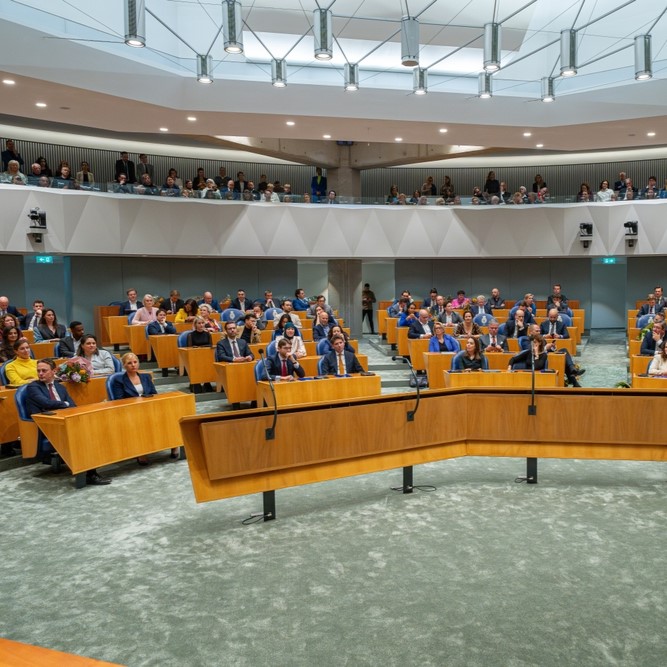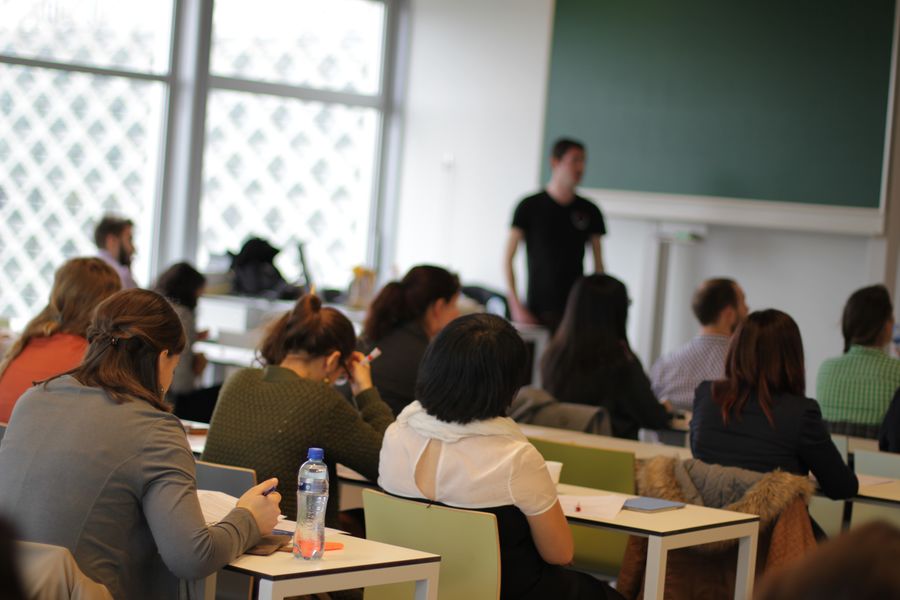A House majority does not want to wait for outgoing minister Dijkgraaf’s legislative proposal containing the same measure.
Many universities have eagerly anticipated the possibility of reducing the influx of international students in accordance with their needs. This so-called “capacity clausus” applies exclusively to English-spoken programmes to ensure Dutch students remain unaffected. A legislative amendment initiated by the VVD provides just that.
Uncontested
The proposal’s content was undisputed, and the House moved in favour a few years ago. However, newly-appointed minister Robbert Dijkgraaf retracted the proposal in the Senate to work on improving it. This took longer than expected. He aims to submit it to the House of Representatives again within a few months. Whether his proposal will be accepted there now that a key element has already been approved remains to be seen.
What precisely happened? VVD spokesperson Claire Martens-America proposed an amendment in January. In view of the increasing influx of international students, she stated that the proposal was taking too long, and she pushed to have the numerus clausus, which was part of Dijkgraaf’s proposal, included in the tertiary education and scientific research laws (Dutch acronym WHW) as soon as possible.
Her proposal met with constitutional objections. An amendment must relate to a law that is, at the time of the proposal, under debate in the House. The House was debating the OCW (Education, Culture and Science) budget at the time, not the WHW or Dijkgraaf’s proposal.
Chaos
Dijkgraaf advised against the amendment because of these constitutional issues and because his legislative proposal contains a broader range of measures. He wants tertiary education to make mandatory investments in the students’ and staff’s Dutch language skills. Universities, however, consider this an attack on their autonomy.
This afternoon, D66 group leader Jan Paternotte reiterated his warning that the VVD amendment would create ‘constitutional chaos’. Paternotte: ‘We circumvent the State Council’s advice and have been unable to debate the issue properly. Moreover, we place pressure on the Senate, who will have to vote against the entire OCW budget if they disagree with the amendment.’
Key element
Whether the Senate will accept this unusual approach is still uncertain. If the law is adopted, universities will breathe a sigh of relief. In a preliminary reaction, the Association of Universities (UNL) states that the adopted amendment is an ‘important element in our plans to create balance in internationalisation.’
Two weeks ago, the UNL suggested that universities should restrict the influx of international students themselves, provided a numerus clause for English-spoken programmes was included in the law. Rector Arthur Mol recently discussed the universities’ collective plans with Resource. Another plan is to create both Dutch and English tracks for bachelors that are currently offered in English.
HOP, Olmo Linthorst

 House of Representatives. Photo Shutterstock
House of Representatives. Photo Shutterstock 

